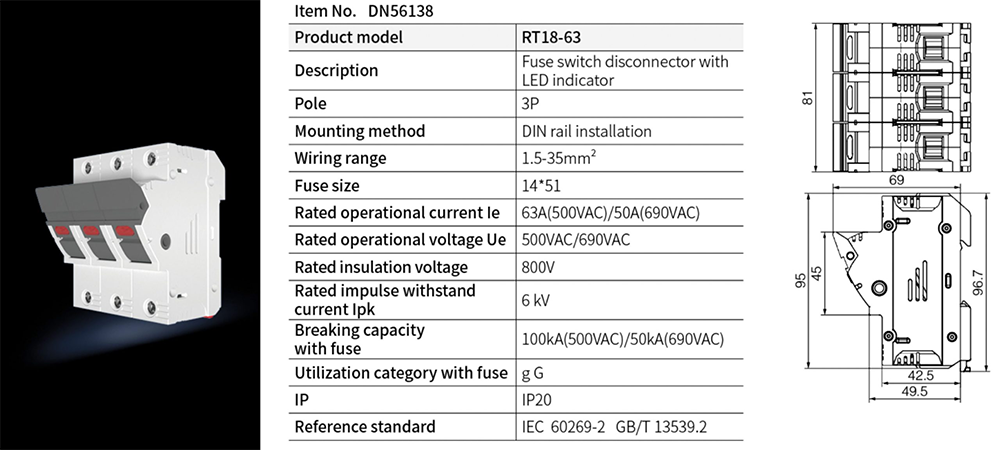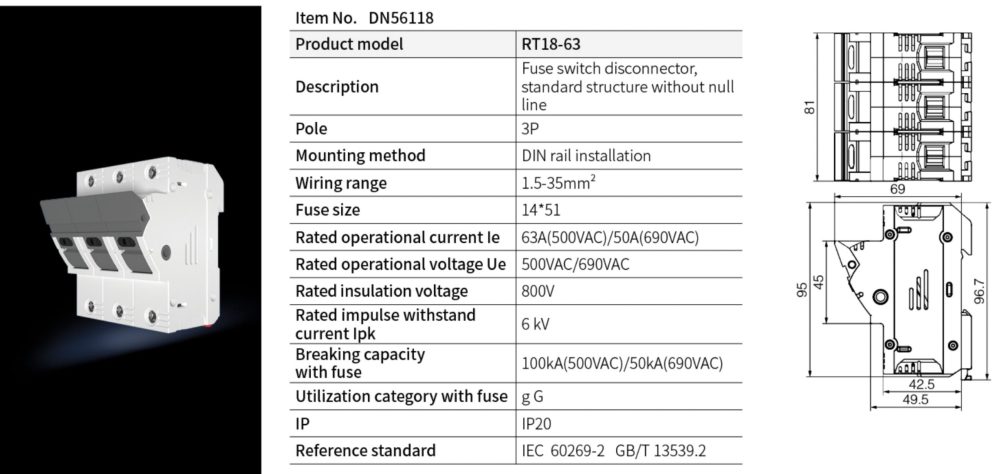How do I choose a fuse holder?
When choosing a fuse holder, there are several factors to consider to ensure the proper selection for your specific application. Here are some key points to keep in mind:
1.Fuse Type and Size: Determine the type and size of the fuse that will be used in your circuit. Different fuse holders are designed to accommodate specific fuse types, such as blade fuses, cartridge fuses, or SMD fuses. Make sure the fuse holder you choose is compatible with the fuse type and size you intend to use.
2.Current Rating: Consider the current rating required for your circuit. Fuse holders are designed to handle specific current ranges, so select a holder that can safely accommodate the maximum current expected in your circuit. It’s important to choose a fuse holder that matches or exceeds the current rating of your fuse.
3.Voltage Rating: Ensure that the voltage rating of the fuse holder is appropriate for your circuit. The voltage rating should match or exceed the voltage of your electrical system to ensure proper insulation and safety.
4.Mounting Style: Determine the mounting style required for your application. Common options include PCB mount, panel mount, in-line, or surface mount. Choose a fuse holder that can be easily installed in the desired location and suits your specific mounting requirements.
5.Environmental Considerations: Consider the environmental conditions in which the fuse holder will be used. Factors like temperature, humidity, vibration, and exposure to chemicals can impact the performance and durability of the holder.
Select a fuse holder that is suitable for the environmental conditions of your application, ensuring it has the necessary protection or sealing if required.
6.Wire Termination: Consider the type of wire termination or connection needed for your circuit. Fuse holders may have different terminal options, such as screw terminals, solder terminals, or quick-connect terminals.
Choose a fuse holder with the appropriate terminals that match your wiring requirements.
7.Safety Features: Evaluate any additional safety features required for your application. This may include features like a cover or enclosure to protect against accidental contact, finger-safe designs, or tamper-proof mechanisms.
Consider any specific safety requirements and select a fuse holder that meets those criteria.
8.Compliance Standards: Ensure that the fuse holder complies with applicable safety and industry standards. Look for certifications or markings that indicate compliance with standards such as UL (Underwriters Laboratories), CSA (Canadian Standards Association), or IEC (International Electrotechnical Commission).
By considering these factors, you can select a fuse holder that is compatible with your fuse type and size, suitable for your circuit’s current and voltage requirements, and appropriate for your specific application and environmental conditions.













